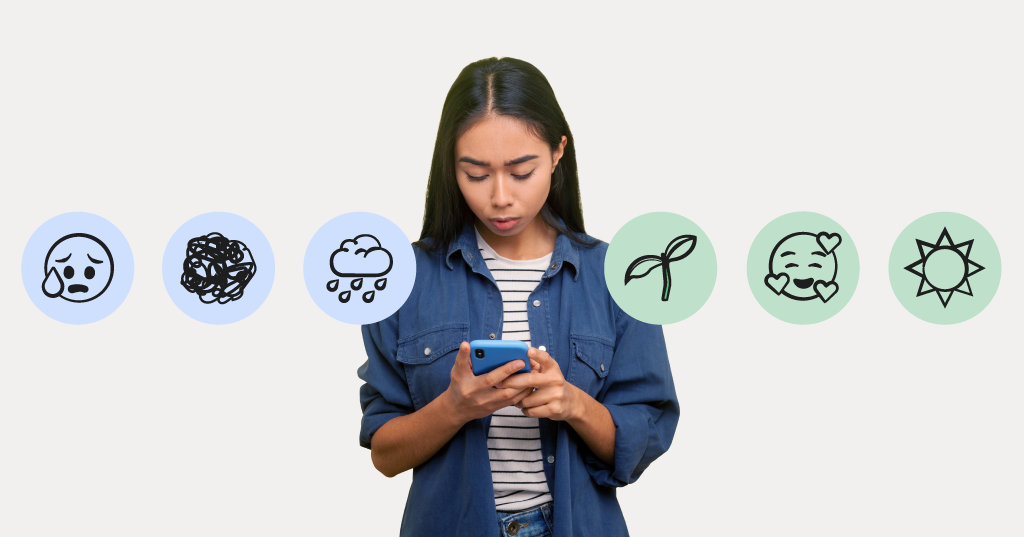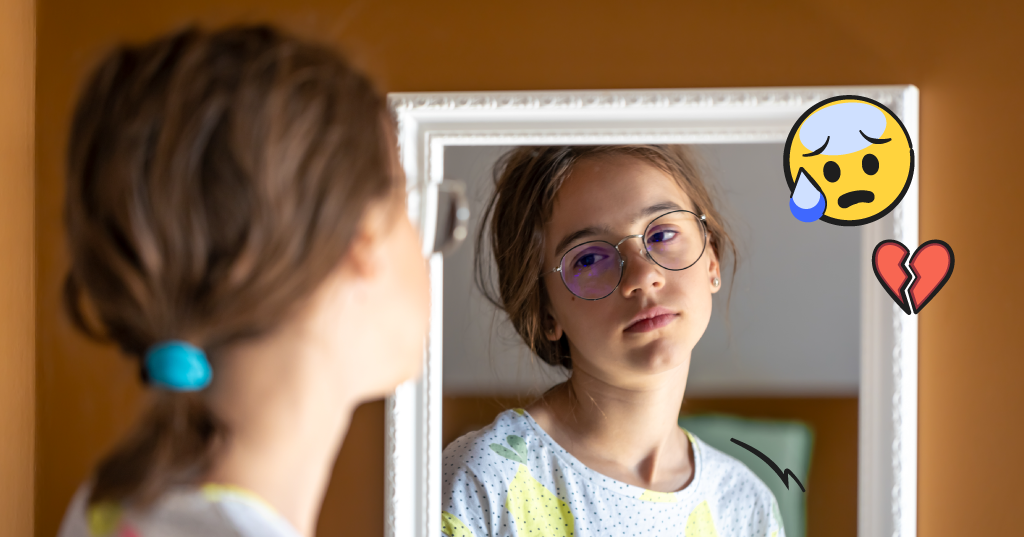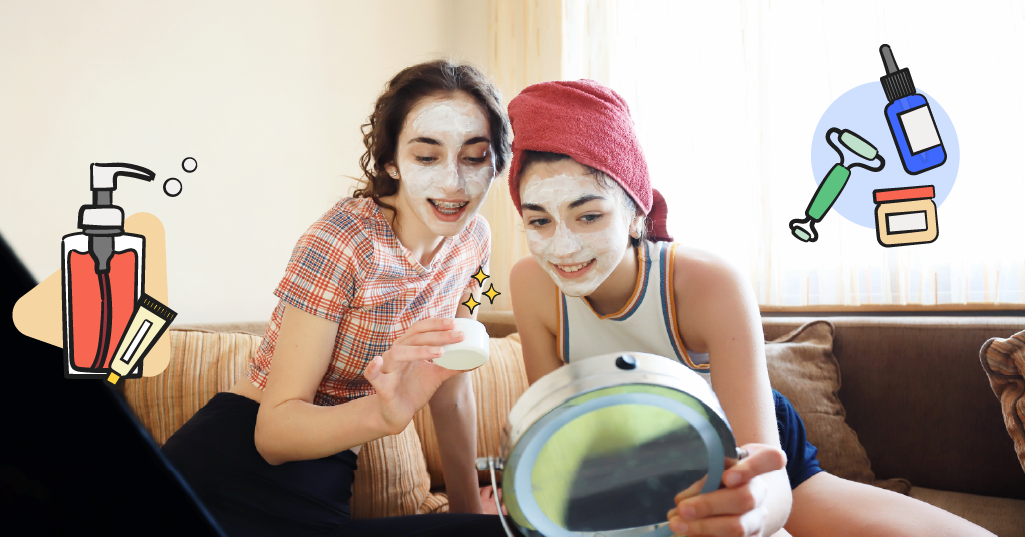It’s Mental Health Awareness Month, and now is a good time for families to strike up conversations about emotional well-being, learn about common issues, and take proactive steps to support each other.
Prioritizing mental health is a life-long journey, and it starts in childhood with open discussions and tons of parental support. Things look a lot different than they did even five or ten years ago — let alone when we were growing up — when it comes to mental health. Here are five things to help shift your perspective regarding mental health in 2024.
5 Things Parents Should Know During Mental Health Awareness Month
1. There's never been a better time for families to talk openly about mental health in human history.
Right now, it’s a pretty common belief that therapy can help nearly everyone, kids and adults alike. Speaking with a mental health professional gives you perspective, allows you to explore big feelings in a safe space, and prompts growth. In the past — and even as recently as the ‘90s — therapy was talked about in hushed whispers and seen as something only for serious problems.
Things are so different today, and having open therapy discussions is just one example of how talking about mental health has lost much of the stigma that it used to. This, combined with the fact that we now know so much more about the root causes of psychological issues, means that parents now have the ability to explain what anxiety, depression, and other concerns are to their children. Mental health issues aren’t moral failings — they’re typically the result of chemical imbalances or situational problems.
Even if these particular issues don’t come up, many modern families have gotten better at encouraging kids to really feel their emotions and speak up about what they’re going through, no matter how hard it might be. Make sure your child knows they can always come to you when they feel off or something isn’t right in their world.
2. Kids actively seek out mental health content on platforms like TikTok.
Because mental health is now so actively discussed in our society, it makes sense that content creators on TikTok and YouTube would begin making videos about it. In fact, you can find therapists and counselors discussing issues like depression and ADHD everywhere online. You can also come across even more content made by everyday people sharing their personal struggles and experiences with mental health.
For kids who are feeling different or scared in their mental health journey, finding information from a community of similar people on social media can help them feel less alone. They can even discover resources like guided meditations and body scans.
There’s a downside, though. It’s important to note that this type of content is not a substitute for professional mental health advice. There can be a tendency for people to incorrectly diagnose themselves based on a few short videos. Remember, many popular online content creators publish videos to drive clicks and sales, so they have a vested interest in making viewers believe what they’re saying.
3. Suicide rates for young people have jumped almost 60% since 2007.
In this study by the CDC, researchers compared suicide rates from two different 3-year periods: 2007–2009 and 2018–2020, and noticed the incredibly eye-opening spike in prevalence.
This is a tragedy for our nation’s youth. Suicide is always a difficult subject to talk about, but it’s so important to understand what’s happening in America right now. Suicide is currently the second-leading cause of death for ages 10–14, a stat that was unthinkable thirty years ago.
We can’t overstate how crucial it is for parents to be mindful of their child’s mental health. Often kids struggle silently with the burden of suicidal ideation, giving no signs of depression and continuing to succeed in school, sports, and hobbies despite being in anguish.
Because of this, parents play a pivotal role in noticing changes in behavior. This way, they can provide support, and get professional help when needed.
4. It’s not just screen time that’s causing problems.
There’s no denying that overreliance on tech devices is an epidemic for families in the modern age. It’s still unclear, too, what’s happening: Is too much screen time causing mental health issues, or are mental health issues prompting more screen time?
While that question may be harder to answer, what we do know is that there are a ton of other factors affecting kids today like mounting academic pressures, changing social dynamics, and widespread societal changes. The pandemic was a global, first-of-its-kind event that upended life as we know it for years, and we’ll likely be feeling the effects of it for years to come.
5. Earlier puberties may be contributing to mental health issues.
Studies have confirmed that puberty happens earlier for kids today than in years past. This means that some of the side effects that come with adolescence — like moodiness and anxiety — can affect kids as young as 9.
But it’s not just hormones potentially affecting mental health. Earlier puberty means body changes that affect a child’s sense of self and outlook on the world. In the past, teenagers were the ones pushing boundaries and learning how to be young adults. With earlier puberty, kids and tweens are entering this era earlier, making parenting them more of a challenge.
Plus, as kids begin to mature quickly, they may also stand out from their peers by being taller or having more developed physical characteristics like facial hair or deeper voices. The physical and emotional changes associated with early puberty can be overwhelming for children.
Understanding these biological shifts can help parents navigate puberty together with their kids, helping to keep an eye out for mental health changes.
How Bark Can Help
With Bark, parents can monitor their child's online activity and detect potential issues related to mental health. Our advanced AI technology analyzes and alerts you to potential concerns like depression, anxiety, suicidal ideation, and a whole host of other issues.
Bark can also help with setting screen time limits and blocking certain apps and websites that may be harmful to your teen's mental health. Start your free, seven-day trial of Bark to see how it can help your family.
Read more
Bark helps families manage and protect their children’s digital lives.





